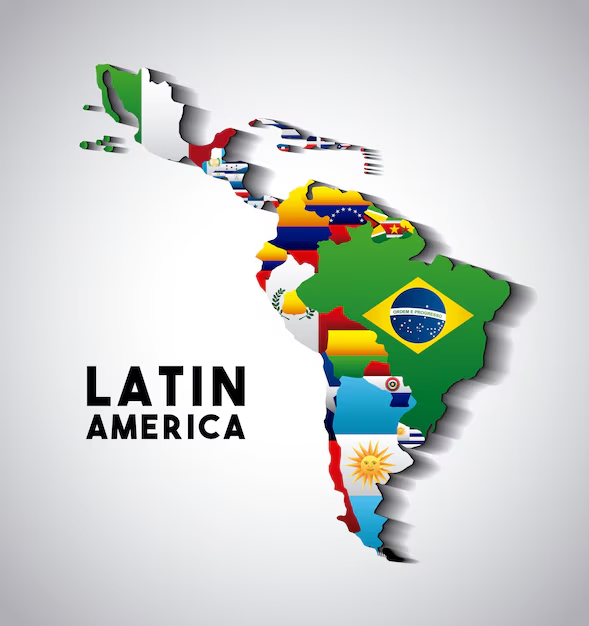North American Human Rights Policy: Strategies, Challenges, and Collaborative Pathways
The pursuit of human rights demands a multifaceted and robust approach in the global arena. This article analyzes the strategies employed within North American foreign policy to promote human rights, while acknowledging the inherent limitations and exploring potential avenues for enhanced regional collaboration within the Americas. We will examine how a concerted, collaborative effort can strengthen unity and advance human rights across the North and South American continents.
Human Rights: Cornerstones of International Relations
Human rights—fundamental principles upholding democracy, justice, and equality—are not mere aspirations; they are essential pillars of effective international relations. Their prioritization significantly influences foreign policy decisions and shapes the dynamics of interstate relationships. A steadfast commitment to human rights reflects a nation's core values and profoundly impacts its global standing.
North American Engagement and Regional Cooperation
Nations such as the United States and Canada have publicly affirmed their dedication to global human rights protection and promotion. However, translating these commitments into tangible outcomes requires strategically planned and effectively implemented actions. The Americas present a unique context for regional cooperation, offering an opportunity to leverage shared values to address significant challenges, such as mass migration, gender inequality, and environmental degradation. A unified approach, anchored in a shared commitment to human rights, holds immense potential for unlocking substantial progress.
Strategies for Enhancing Human Rights Promotion
The successful promotion of human rights necessitates a comprehensive, multi-pronged strategy:
- Strengthened Diplomacy and Advocacy: Proactive diplomatic engagement is paramount. North American nations can leverage their considerable influence to advocate for human rights on the international stage and encourage adherence to globally recognized standards. This includes targeted pressure on states with poor human rights records and active participation in international human rights mechanisms.
- Strategic Economic Incentives: Integrating robust human rights clauses into trade agreements creates potent incentives for nations to improve their human rights performance. Linking economic benefits to demonstrable progress in upholding human rights can serve as a powerful catalyst for positive change.
- Capacity Building and Empowerment: Investing in civil society organizations and comprehensive human rights education empowers individuals and communities to become active agents of change. This empowers them to advocate for their rights and hold their governments accountable, fostering a culture of human rights at the grassroots level.
Addressing Challenges and Limitations
Despite the laudable objectives, several significant challenges hinder the effective promotion of human rights:
- Navigating Sovereignty Concerns: Balancing human rights promotion with the principle of national sovereignty demands careful consideration. External pressure must be calibrated to avoid the perception of interference in internal affairs, while still effectively addressing human rights violations.
- Addressing Policy Inconsistencies: Inconsistencies in the application of human rights standards by North American nations undermine their credibility and effectiveness. Maintaining a consistent and transparent approach is essential for building trust and fostering genuine progress.
- Improving Coordination and Collaboration: Effective human rights promotion requires robust coordination among North American nations and collaborative partnerships with regional and international organizations. A unified approach maximizes impact and minimizes the duplication of efforts, ensuring resources are utilized efficiently.
Building Unity Through Shared Values
Prioritizing human rights in foreign policy strengthens regional relationships based on shared values, leading to greater unity. Collaborative efforts to combat transnational challenges such as drug trafficking, corruption, and poverty contribute to a more stable and prosperous North and South America. This regional unity creates a powerful force for positive change, fostering a more secure and equitable environment for all.
Individual Action and Impactful Initiatives
Individual action plays a vital role. Educating oneself about human rights abuses and participating in grassroots movements amplifies the voices of vulnerable populations, driving meaningful change. Organizations like the Inter-American Commission on Human Rights (IACHR) play a crucial role in monitoring human rights situations and promoting accountability. Targeted initiatives such as the United States' Magnitsky Act demonstrate effective approaches to addressing specific human rights abuses.
Strengthening Regional Cooperation and Individual Engagement
Numerous opportunities exist for enhanced collaboration. Academic exchanges, cultural events, and joint research initiatives foster mutual understanding and solidarity across the Americas. Individuals can cultivate expertise in international relations through continuous learning, engaging with subject matter experts, and actively participating in relevant discussions. Staying informed about current events is essential for effective engagement in the ongoing effort to protect and promote human rights.
Critical Questions for Reflection and Action
- How can a more effective balance be achieved between promoting human rights and respecting national sovereignty, ensuring a nuanced and respectful approach to addressing human rights violations?
- What innovative strategies can be implemented to significantly improve the effectiveness of North American human rights promotion efforts, leading to more tangible results?
- How can regional organizations, such as the Organization of American States (OAS), play a more significant role in safeguarding and promoting human rights throughout the Americas, leveraging their unique position and resources?
Conclusion: A Collective Endeavor
Promoting and protecting human rights in the Americas is a collective responsibility. By acknowledging the complexities and challenges involved and fostering collaboration among individuals, governments, and civil society organizations, we can build a more just and united region. Let us work together to advocate for human rights, strengthen regional cooperation, and create positive and lasting change throughout North and South America.



